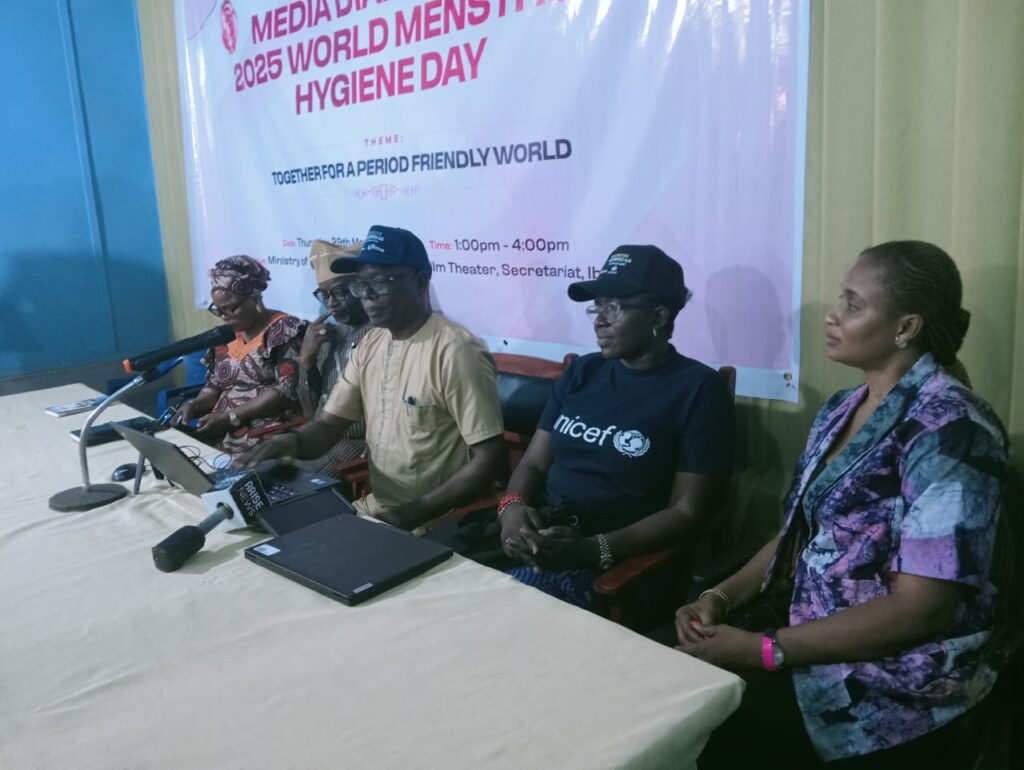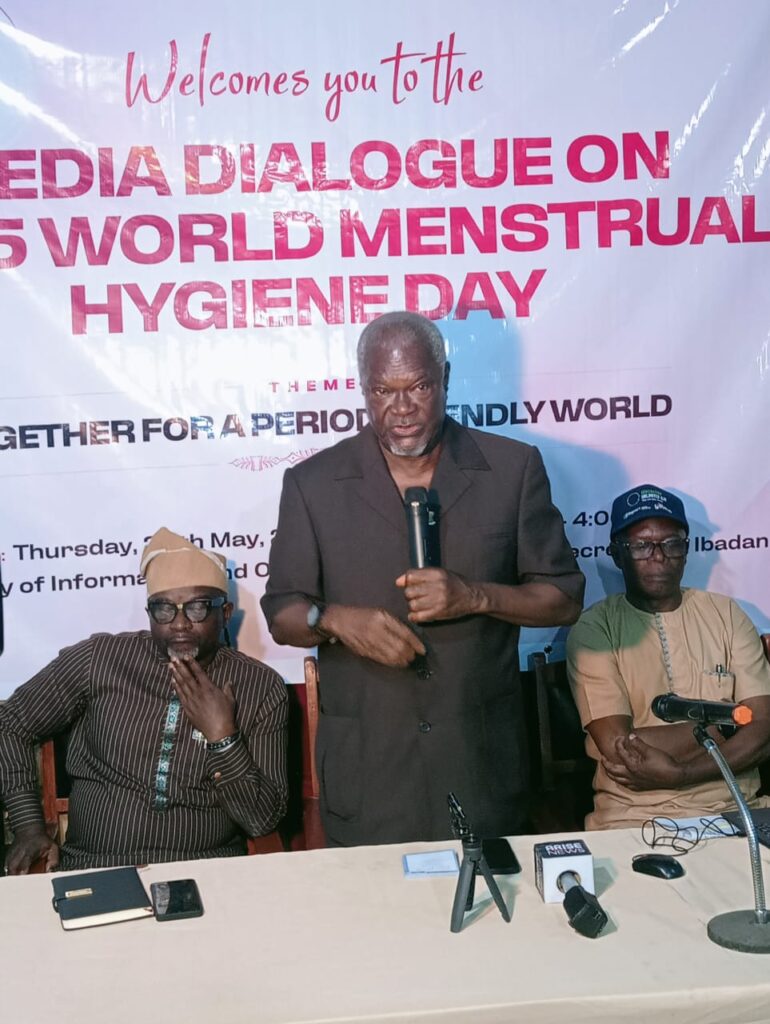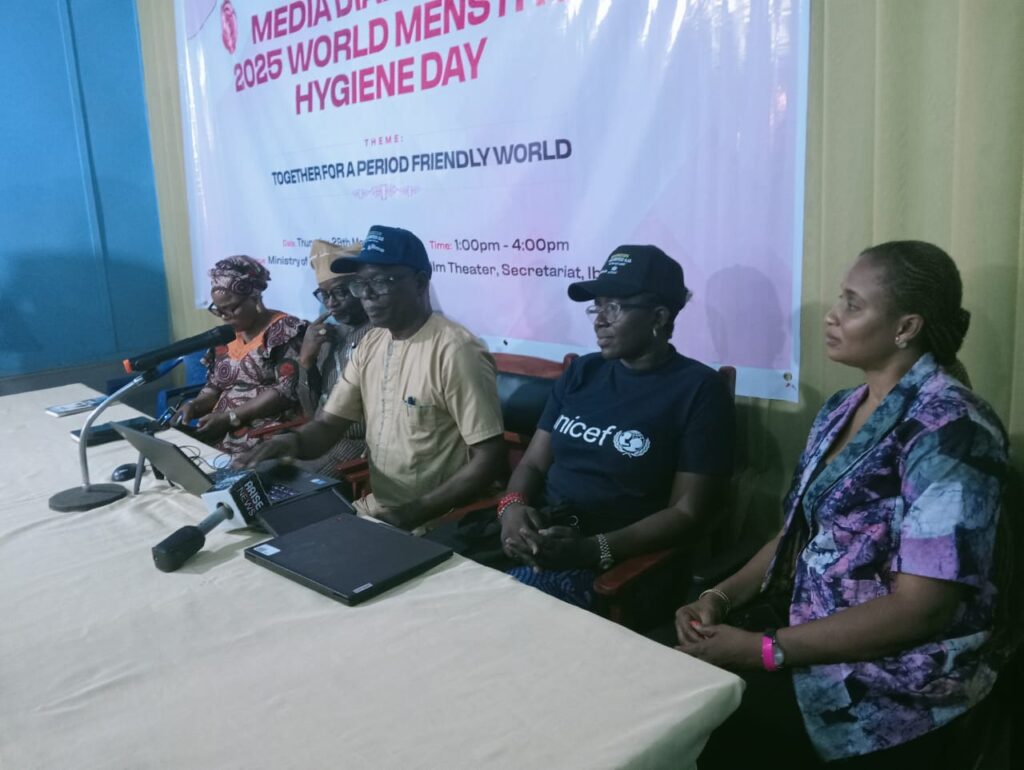
Public and private organizations in the country and beyond have been called upon to embrace policies that will promote proper management of menstrual hygiene in places of work, religious centers, and society at large.
This was part of the submissions of participants at a day Media Dialogue of the Oyo State Ministry of Information and Orientation and the United Nations for Children’s Fund (UNICEF), held at the Ministry’s Film Theatre, Secretariat, Agodi, Ibadan.
Speaking at the event organized to mark the 2025 World Menstrual Hygiene Day, themed “Together for A Period Friendly World”, the Wash Officer , UNICEF, Mr. Monday Johnson, emphasized the need for young girls and women to have access to save environment and affordable menstrual products or tools during menstrual period.
He explained that the culture of stigmatization against young girls and women during menstrual period remains a direct violation of victims’ rights, which has negative impacts on their mental health.
He called on policymakers to come up with bills that will address challenges associated with access to good menstrual hygiene management environment and also introduce teaching of menstrual education in schools so that the girl child can acquire the required education and information about menstruation at early stage of life.
Delivering his address, the Commissioner for Information and Orientation, Prince Dotun Oyelade, commended UNICEF for its significant roles and support in the realization of various laudable projects globally.

Prince Oyelade, who described the media parley and collaboration between both the Ministry and UNICEF as unique, expressed the willingness of the Oyo state government to be of assistance to UNICEF in any manner .
Speaking on menstruation myths, Social and Behaviour Change Specialist, UNICEF, Aderonke Akinwole , said it is time for all and sundry to see menstruation as normal part of human life of women, saying the act is capable of putting an end to the emotional discomfort women and young girls undergo during menstrual period.
Aderonke opined that menstruation should not be responsible for women’s isolation in the society.
She sought collaborative efforts among relevant authorities, groups, and individuals to put an end to stigmatization of women and girls while menstruating.

“ Reaching or praying to God during menstrual period should not be a barrier because God is the foundation. “Menstruation is part of the physiology of life, it is not unclean, what is important during this period is hygiene”
“ We need to break the silence of stigmatization and celebrate menstruation as part of humanity “she concluded.


